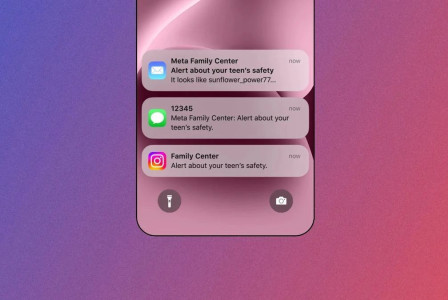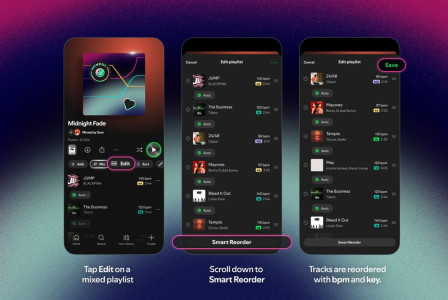SEARCH
Google introduces Gemini’s own memory and private chat tools
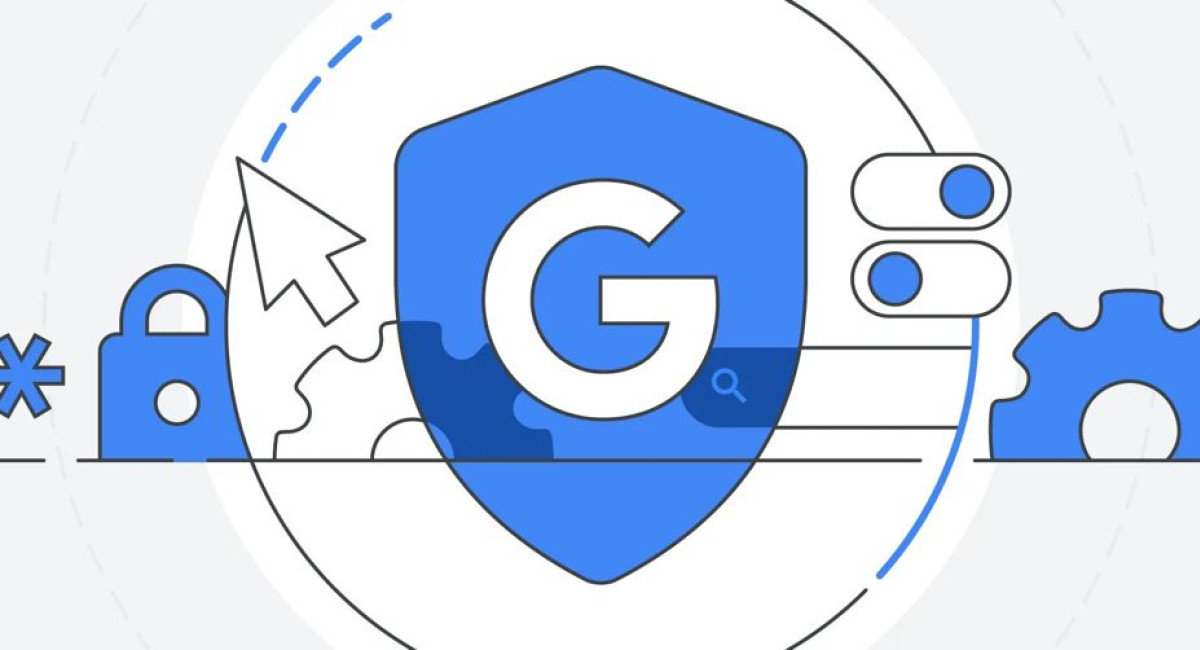
SHARE IT
In a move that closely mirrors OpenAI’s approach, Google has announced the rollout of two new features for its Gemini AI platform: a memory-based personalization tool and a private chat mode. The updates position Gemini squarely in competition with ChatGPT, which has been offering similar capabilities for months.
Back in April, OpenAI introduced a feature in ChatGPT called “memories,” designed to make conversations with the AI more personal and context-aware over time. This function differs significantly from the older, more limited “saved memories” option. Instead of simply storing static notes that could be viewed and deleted at will, ChatGPT’s memories evolve dynamically. The system gradually learns which details are most useful to retain, incorporating them into future responses. This allows ChatGPT to tailor its output in ways that feel more relevant and directly connected to each user’s habits, preferences, and prior interactions.
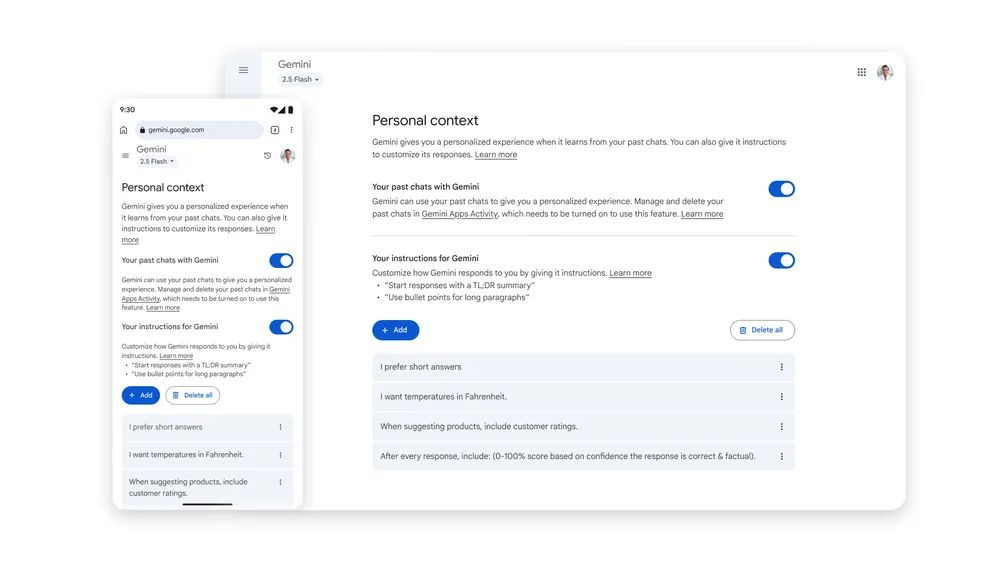
Now, Google is stepping into the same territory. The company has unveiled “Personal Context” for Gemini, a setting that enables the AI to build a knowledge base from previous conversations. When activated, Gemini will store important personal details you’ve shared—such as your name, your favorite color, or your dietary choices—and use them to shape future responses.
Google offers an example to illustrate the feature’s potential: imagine you’ve used Gemini to develop ideas for a YouTube channel centered on Japanese culture. If you later request “new content ideas based on my interests,” Gemini might suggest a theme like “My First Time Trying…” This could lead you to record yourself sampling a new Japanese dish, learning a traditional craft such as origami or participating in a tea ceremony, or even testing out a recently released Japanese video game.
According to Google, Personal Context will begin rolling out to Gemini users starting today, with a gradual expansion over the next few weeks. At launch, it will be limited to the Gemini 2.5 Pro model, though the company plans to extend it to Gemini 2.5 Flash in the future. Importantly, the setting will be turned on by default. Those who prefer not to have their AI interactions remembered can disable it by navigating to Settings in the Gemini app, selecting “Personal Context,” and choosing the option to stop storing past chats.
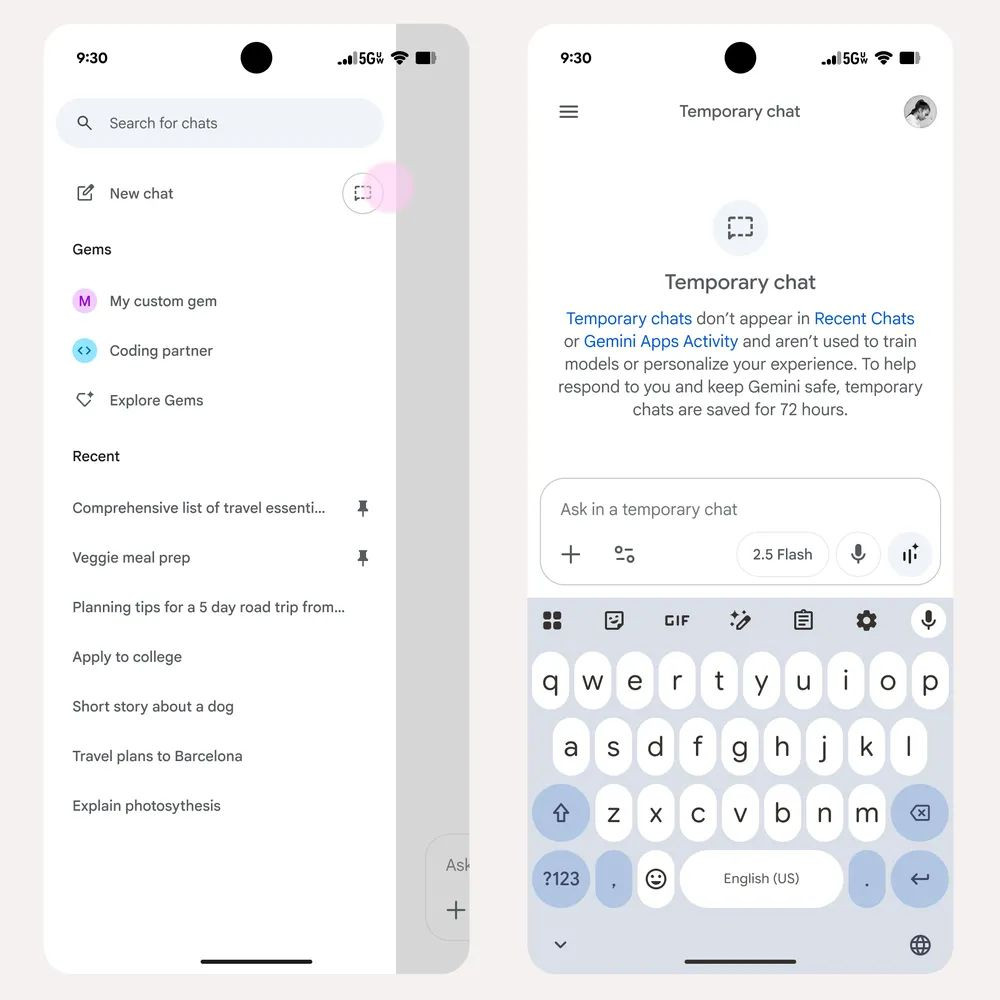
But Google’s imitation of ChatGPT doesn’t stop there. Alongside the new memory function, Gemini is also adopting a privacy-focused option modeled directly after ChatGPT’s “Temporary Chat” feature. This tool is intended for conversations that the user does not want included in the AI’s long-term memory.
When Temporary Chat mode is enabled, Gemini will treat the conversation as isolated. None of the exchanges will appear in the Gemini Apps Activity history, and Google will not use the content of these chats to train its AI models. This provides a way for users to ask sensitive or one-off questions without influencing the AI’s stored understanding of their preferences.
The introduction of these features signals Google’s intention to close the functional gap with OpenAI’s ChatGPT. While Gemini has been evolving steadily since its release, the absence of persistent personalization and optional private sessions left it at a disadvantage for users who expect their AI assistant to “know” them while still offering privacy when needed.
The move also highlights a broader trend in the AI industry: personalization is becoming a central battleground. As these systems become more embedded in everyday life, users increasingly expect them to act less like generic search engines and more like adaptive, context-aware assistants. This requires balancing memory with privacy—two goals that can be in tension if not carefully managed.
Google’s decision to enable Personal Context by default may raise questions about transparency and consent. While the company offers a straightforward opt-out path, some users may be unaware that their chats are being stored in a way that shapes future interactions. The rollout of Temporary Chat may help mitigate those concerns, offering a built-in safeguard for sensitive exchanges.
For now, both Personal Context and Temporary Chat are in the early stages of deployment. Google is introducing them gradually, a strategy that allows the company to monitor user feedback and make adjustments before extending them to the entire Gemini user base. Whether these features will be enough to match ChatGPT’s lead in personalization remains to be seen, but they mark a clear shift in Google’s strategy toward offering a more tailored and private AI experience.
MORE NEWS FOR YOU

 Help & Support
Help & Support 